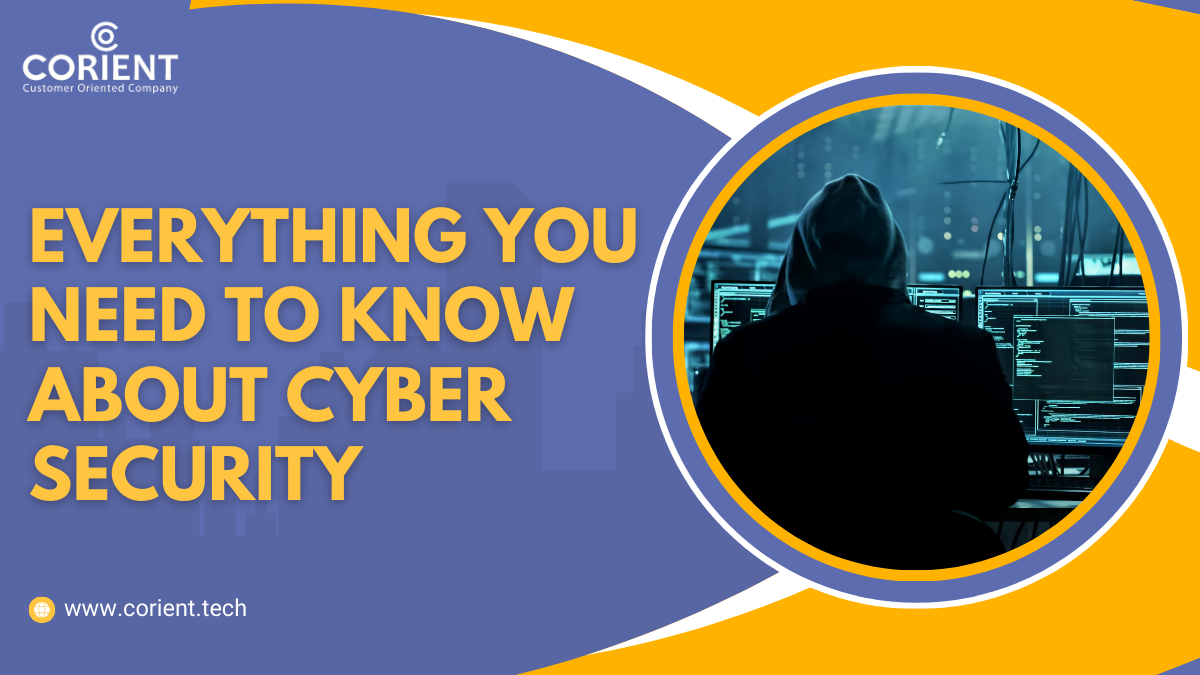Our daily life has become highly reliant on technology, and it is now easy for us to access information from the web world. Businesses also choose technologies for different activities. Their online activities lead to the generation of a vast amount of data. However, modern techs have increased the risk of cyber security threats. Cybercriminals apply a range of tactics to steal data. That is why it has become more important to think of cybersecurity. Let us talk more about cybersecurity and its significance in the business world.
What is cybersecurity?
Cybersecurity is a way to protect your interconnected systems and data from cyber threats. Both enterprises and individuals can take steps to prevent unauthorized access to their computerized systems and data centers.
An effective strategy for cyber security lets you develop a security infrastructure that fights against malicious attacks. Most commonly, these attacks are intended to destroy, alter, delete and access the users’ systems. Moreover, cybersecurity prevents attackers from disrupting and disabling the device’s operations.
Why should SMEs give importance to cybersecurity?
It is a misconception that cyber criminals target only large organizations. Small business owners and startups think that they have no risk of cybercrimes. However, in reality, it is not true. They can also fall prey to hackers.
Cybercriminals think that it is easy to target small and medium-sized businesses. Why? Check the reasons-
- Lack of training and low budget for developing a secure infrastructure
- Lack of knowledgeable cybersecurity specialists
- No security awareness in the workforce
- Security systems not updated regularly
- Lack of risk management policy
There are some other reasons why your small business should invest in cybersecurity solutions-
- Your business information is valuable
Your computer systems and other devices have stored sensitive details about your customers and employees. Hackers try to hack their financial and personal information, including banking details.
- Damage your business reputation
As you are a startup, your business status is not much strong. To avoid the risk of reputational damages, you need to focus on cyber security.
- Hackers look for easy targets
Cybercriminals always search for good opportunities to make malicious attacks. As large organizations have strong security systems, hackers turn to small companies.
Types of cyber-attacks
Cyber-attacks can be of different types-
- Malware
Malware is malicious software that contains viruses like Trojans, adware, ransomware, and spyware. Ransomware attacks prevent you from accessing key components of the network. Similarly, adware displays ads like banners on the screen. Use firewalls and anti-virus to prevent malware.
- Password attacks
Hackers try to crack passwords using different tools and programs. Brute force attacks and other password attacks can be prevented by choosing strong alphanumeric passwords. Moreover, it is important to update passwords occasionally.
- Phishing
It is also known as the social engineering attack, as the criminal pretends to be a reliable contact. He sends fake emails to the victim. When the victim opens the email and hits the malicious link, confidential information gets leaked. You can use an anti-phishing toolbar to prevent these problems.
- SQL injection
Database-driven websites have a risk of SQL injection attacks. Hackers control a standard SQL query and inject malicious codes into websites. It is safe to implement an intrusion detection system to identify unauthorized network access.
Different ways to ensure cybersecurity
- 2FA
2-factor authentication is a special login process where the system sends an OTP after the user has entered the password. The OTP is sent via SMS and email. The user has to submit the code to access the dashboard.
- Strong password
The combination of alphanumeric letters makes the password stronger. Do not choose common words and names as passwords.
- Software updates
You have installed software in your business computer systems and laptops. However, without updated versions of the software, there is a risk of viral attacks. You may also activate automatic updates.
- Reporting phishing
When you have noticed phishing attempts, you can simply report them. It will reduce the risk of scam communications in the future. Scammers will not easily target.
Tips for SMEs on Cyber security
We have shared some more tips on how to fight against cyber criminals-
- Install firewall and anti-virus software- These 2 things will keep your device safe from hacking. Anti-virus software detects threats in your system and neutralizes them.
- Provide technology training- It is the most important step for every business. Let your employees undergo comprehensive cyber security training. They should know how to identify malicious links and emails. Talk to a cyber-security consultant for this purpose.
- Choose a VPN- Virtual Private Network is the best tool for SMBs and starts who do not like to pay for a costly internal network.
So, you can now take the most important steps for securing your business network and devices. The security infrastructure of your business should be strong.

